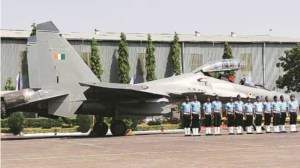Jain panel report bares close LTTE-ULFA nexus
NEW DELHI, Nov 20: Afew months before Rajiv Gandhi's assassination was plotted and carried out in Tamil Nadu, Chennai was being used by the...

NEW DELHI, Nov 20: Afew months before Rajiv Gandhi’s assassination was plotted and carried out in Tamil Nadu, Chennai was being used by the LTTE not just to forge an unholy alliance with Karunanidhi’s DMK government. Lankan Tigers, reveals the Jain commission’s interim report, were using the secure colonies in Chennai to assist and educate a core group of the United Liberation Front of Assam (ULFA) which, like the LTTE, had Rajiv Gandhi high on its hit list.
In 1990, according to the chapters on the sequence of events which led to Rajiv’s assassination, Tamil Nadu was so secure for LTTE militants that it was often the venue for secret meetings, arms trade and money transactions between Lankan Tigers and ULFA militants. In the chapter on Threats and Security, which details attempts and plots that were being hatched in various parts of the country and abroad to eliminated Rajiv Gandhi, Justice Jain clearly says, “While on one hand the ULFA attempted to make arrangements with the Sikhs, seeking their assistance to eliminate Rajiv Gandhi, on the other hand an unholy alliance was developing between the ULFA and the LTTE.
“Threat posed by the ULFA took a serious turn in 1990 when intelligence reports indicated, for the first time, that Rajiv Gandhi had been included in ULFA’s hit list,” the report says. The report explains that following Rajiv Gandhi’s visit to Assam in June 1990, ULFA contemplated a conspiracy to engineer another visit of the former prime minister by influencing some State Congress leaders. “ULFA claimed that they had unhindered access inside the Guwahati hotel, Rituraj, where Rajiv Gandhi had stayed during his June trip,” the report says.
According to an intelligence report quoted in the report, “A Tamil Nadu cell of the ULFA was set up in February 1990 by a top ULFA activist. The purpose was to develop a network and open a line to the LTTE. ”
According to the Jain Commission report, three central committee members of the ULFA visited Madras in the first week of August 1990 to meet top LTTE leaders and gain expertise in handling explosives. Almost immediately after, the report reveals, a top LTTE member visited ULFA headquarters in Assam and was, in fact, even taken to ULFA’s Central headquarters where he held detailed discussions with Paresh Baruah, ULFA’s commander-in-chief.





- 01
- 02
- 03
- 04
- 05

























